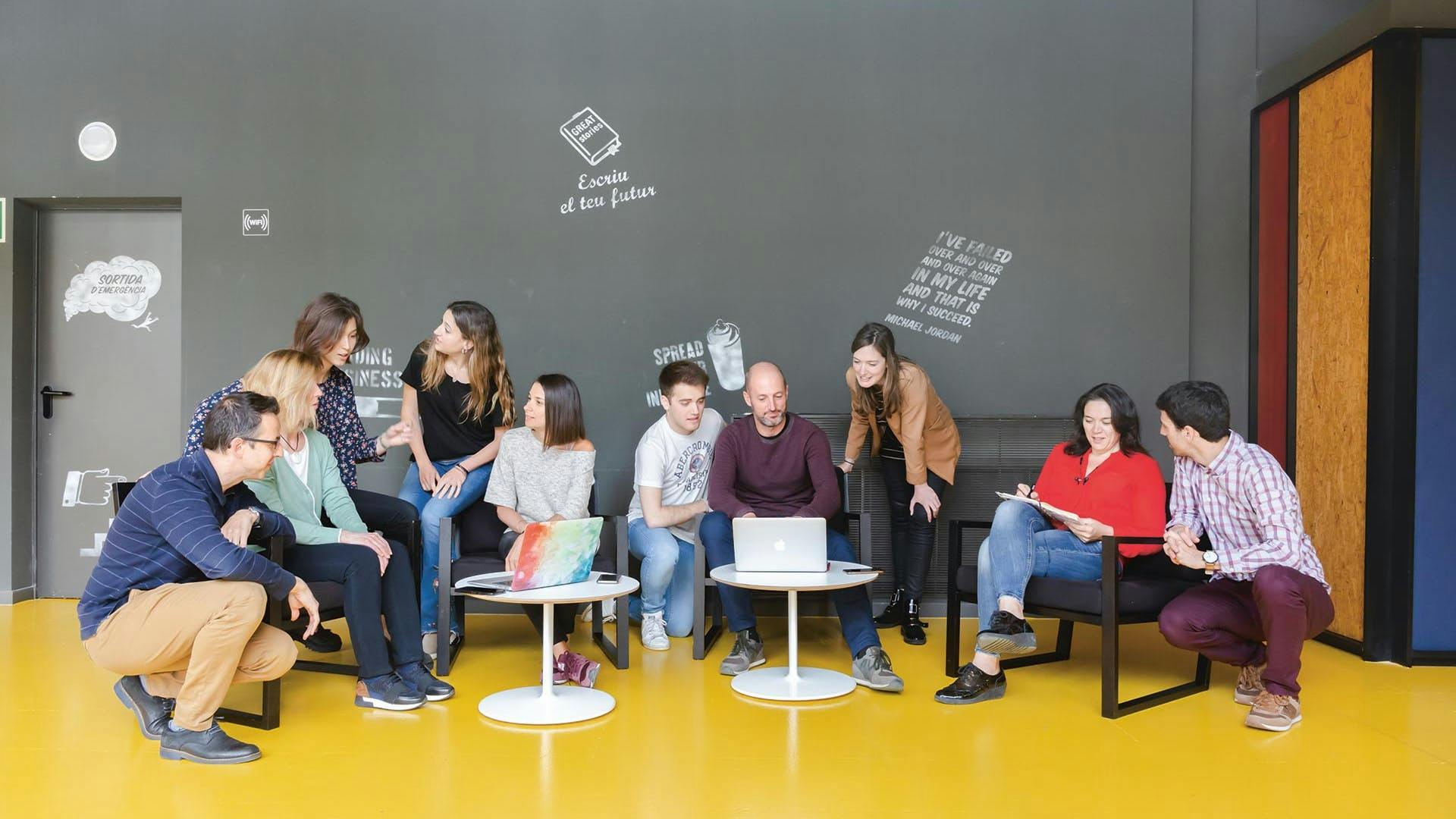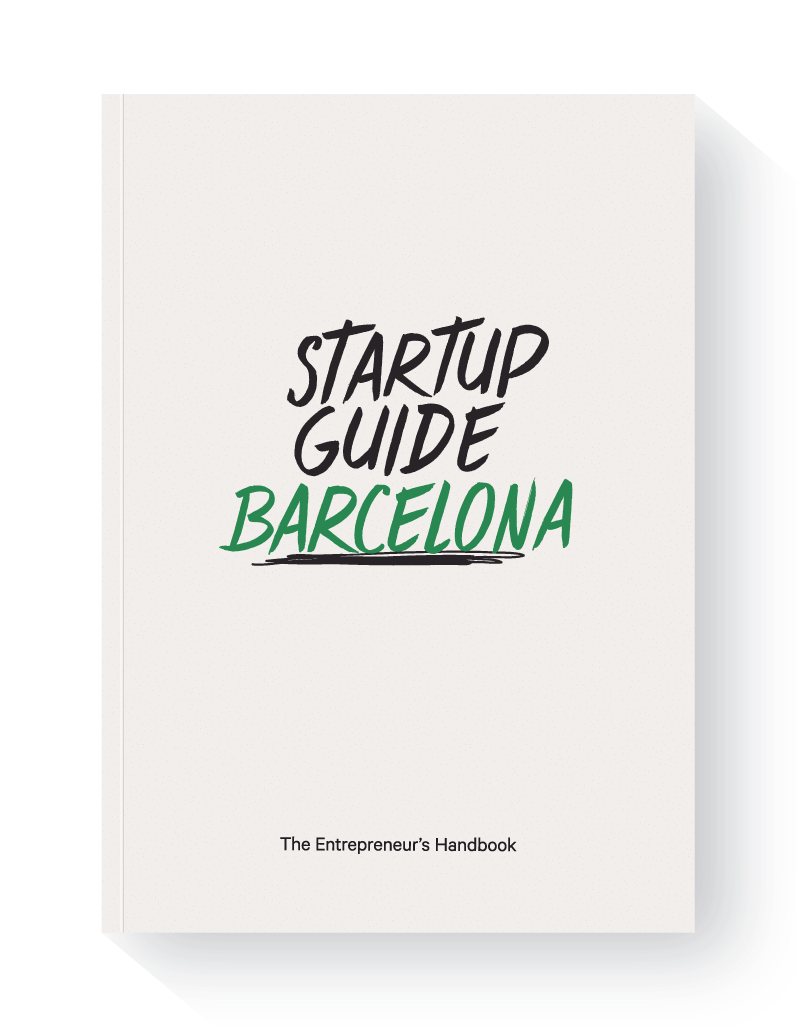Highlighting our accelerator and incubator picks for entrepreneurs in Barcelona
arcelona is an ideal hub for current and future entrepreneurs. One of its advantages, aside from its richness of culture and sunshine, is the impressive roster of accelerator and incubator programs available to entrepreneurs in the Catalan capital.
There’s more to Barcelona than beautiful beaches, excellent cuisine that marries tradition with gastronomic innovation, and architectural marvels by Antoni Gaudí. The city is also a thriving and growing hub for entrepreneurs, investors, tech professionals and more.
Barcelona’s ecosystem has over the past decade or so become one of the most dynamic and fast-growing startup communities in Europe. The Catalan capital’s ecosystem has a wide range of innovative startups and corporates ready to collaborate with budding companies, and is home to the Mobile World Congress, Smart City Expo and many other sought-after events.
Entrepreneurs also flock to Barcelona for the leading universities and research centers in town, including the University of Barcelona and ESADE, as many of them have excellent offerings for future entrepreneurs and innovators.
One of the main highlights of Barcelona’s ecosystem, apart from the business and educational offerings already mentioned - and the pristine sunshine and work/life balance that comes with it - is the impressive roster of accelerator and incubator programs serving future entrepreneurs.
In this piece, we present our picks for the best programs to look into if you want to start or grow your business with speed and gusto.
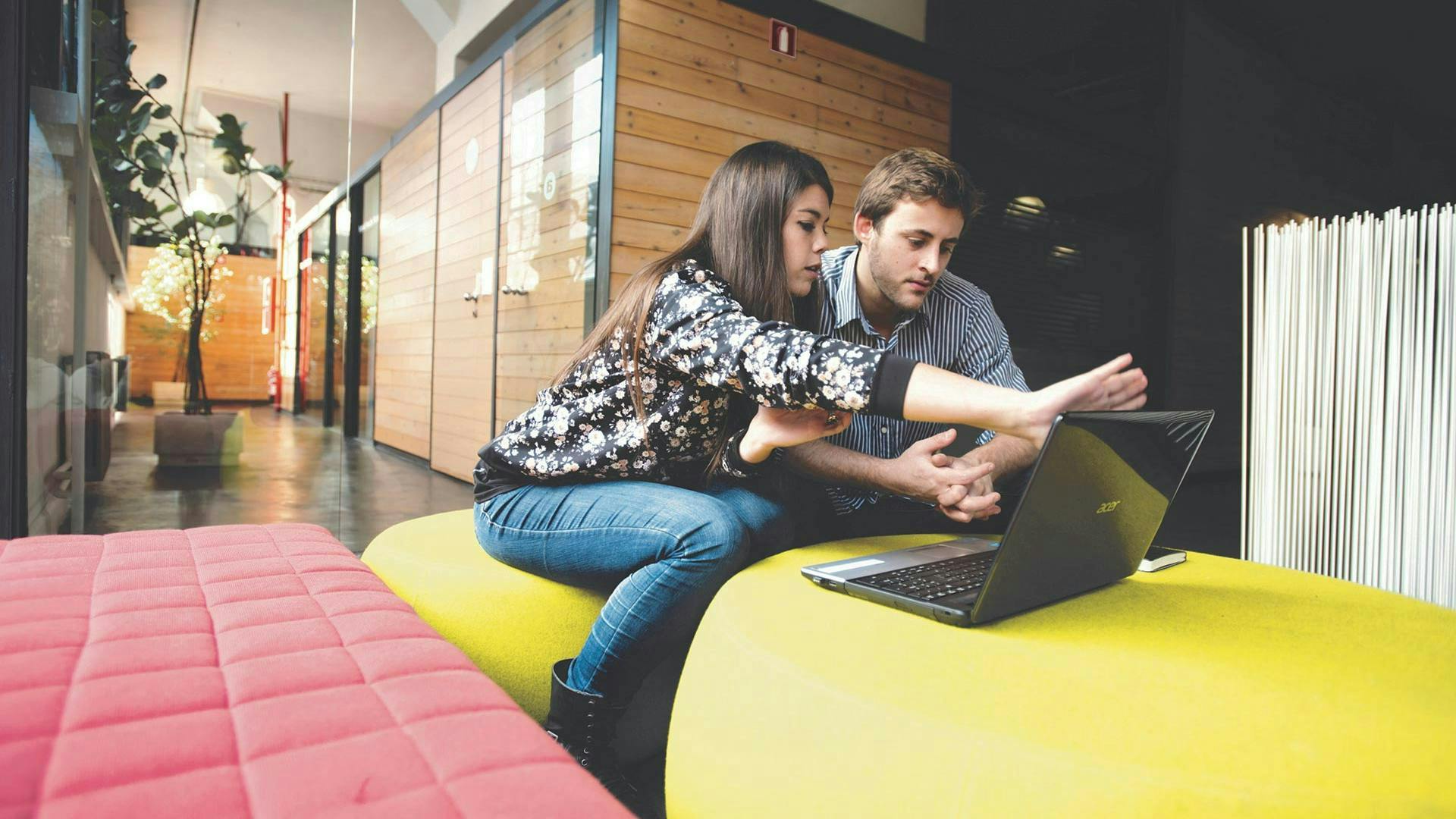
Barcelona Activa
Started in 1986 by the City Council to promote entrepreneurship, accelerate growth and create new job opportunities in town, Barcelona Activa is a driving force for new business creation and innovation. Open to all innovative sectors, Barcelona Activa is open and inclusive, and adapts to the diverse needs of the city’s entrepreneurs.
The agency’s network of incubators, including the Glòries Incubator, Almogàvers Incubator, ESA BIC Barcelona and Media TIC Incubator, supports business projects in the ideation and growth stages. More recently, Barcelona Activa has opened the InnBA facility, which supports projects in Social and Solidarity Economy (SSE) and socio-economic innovation.
Jaume Collboni, the deputy mayor of Economy, Work, Competitiveness and the Barcelona City Council’s Tax Office says, “As Barcelona becomes one of the most attractive startup hubs in Europe, we want to boost resources and support for entrepreneurs in the ecosystems and help startups create impact in our society.”
Barcelona Activa’s range of programs includes the Preincubation Program, which helps early-stage digital startups validate and launch through cocreation and coworking (participants get six months of free coworking space), and a three-year incubation program that includes mentoring, business-plan validation, financial advice and investor access.
Foreign startups can make use of Barcelona Activa’s cross-landing program, and anyone looking to scale usability can approach the organizations newest venture, UXLab.
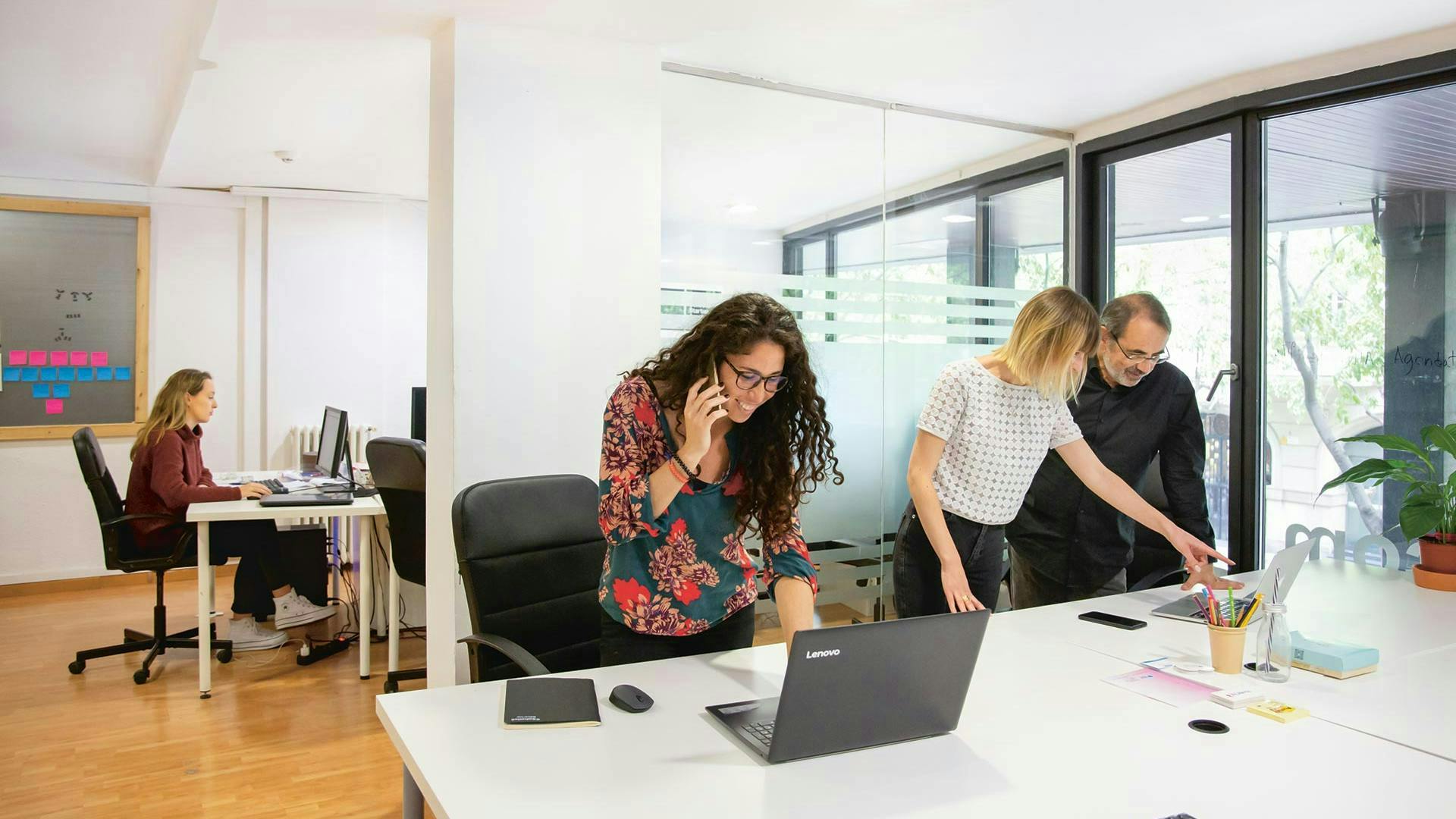
Conector
Founded by eight serial entrepreneurs, Conector is a seed-stage accelerator that offers startups intensive, immersive and programmatic support and access to a vast expert and investor network.
Conector, which leverages a high-level mentor network in their development of startups, runs two five-month programs per year in Barcelona, with other program offerings in Madrid and Galicia. Participants who pass through Conector’s rigorous vetting process are given access to a coworking space, a curriculum of workshops and an advisory board of three to five mentors matched based on their needs.
In exchange for the full-time program, Conector takes between four and seven percent equity from each graduating startup. Mentors are also given a percent equity of their startups.
Thanks to continued post-graduation support and a place in Conector’s equity portfolio, the program boasts that over 70 percent of companies that pass through their halls are still running five or so years after their exit.
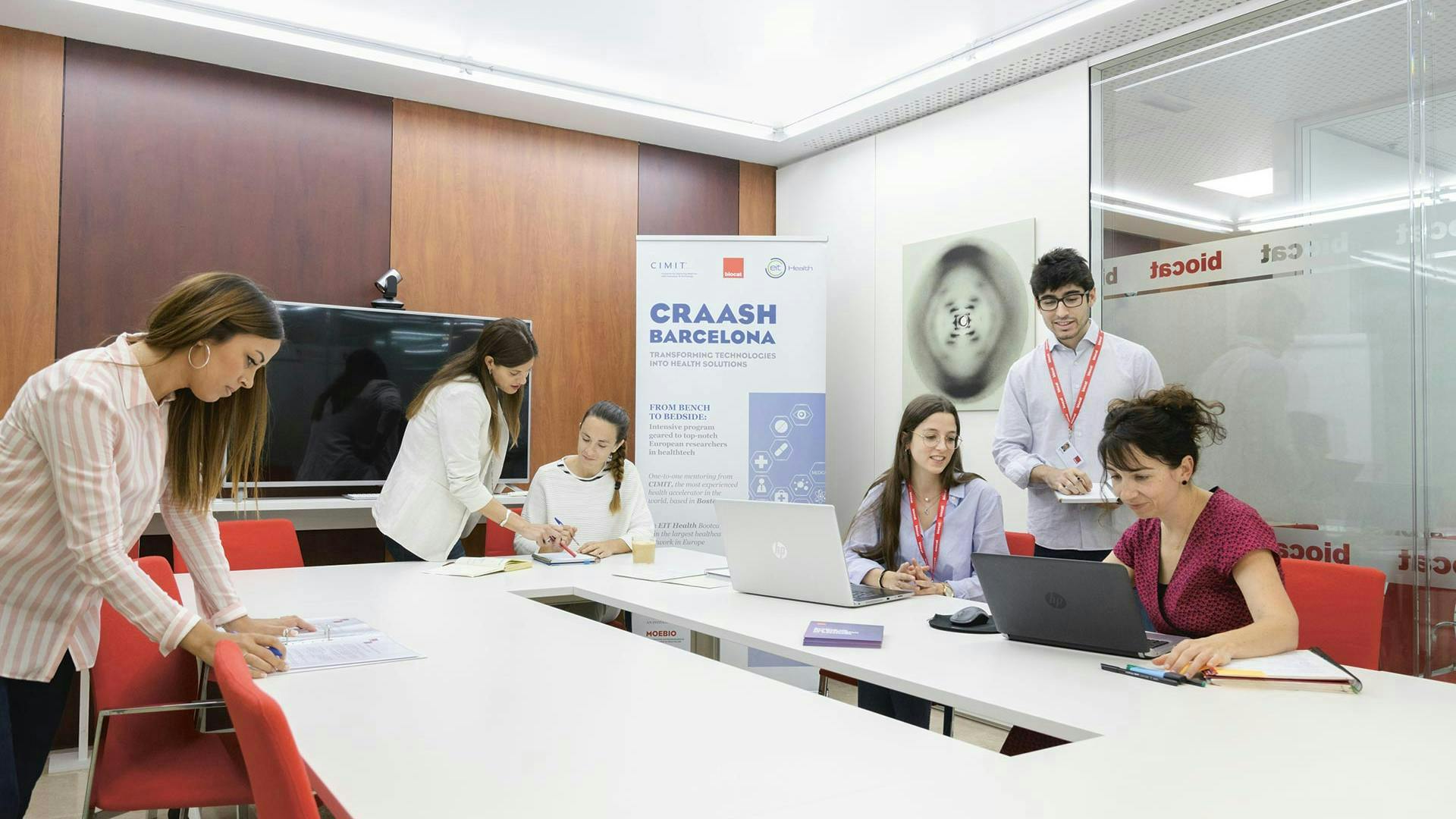
CRAASH Barcelona
Known for their local approach to incubating healthcare startups, CRAASH Barcelona came together thanks to a collaboration between the Consortia for Improving Medicine with Innovation & Technology (CIMIT) in Boston, and Biocat and EIT Health in Barcelona.
“We realized that there was a missing piece in the ecosystem,” says Biocat’s director Raquel Riera, citing the opportunity CRAASH Barcelona saw to build on the city’s healthcare market. “The program is developed in Barcelona, but it’s truly for international projects.”
Startups enrolled in this program drill down their proof of concept and identify viable markets in Europe and the US over a twelve-week period. Run primarily in Barcelona, the program includes stops in Paris, Boston and The Netherlands.
Startups enrolled in the program go through three stages: program delivery, market validation in Europe, and networking and validation in Boston. The main idea is to teach startups skills that they can’t get in a lab, such as developing stakeholder maps and pitching to investors, so they walk away with ideas that are just as viable in Europe as they are in the US.
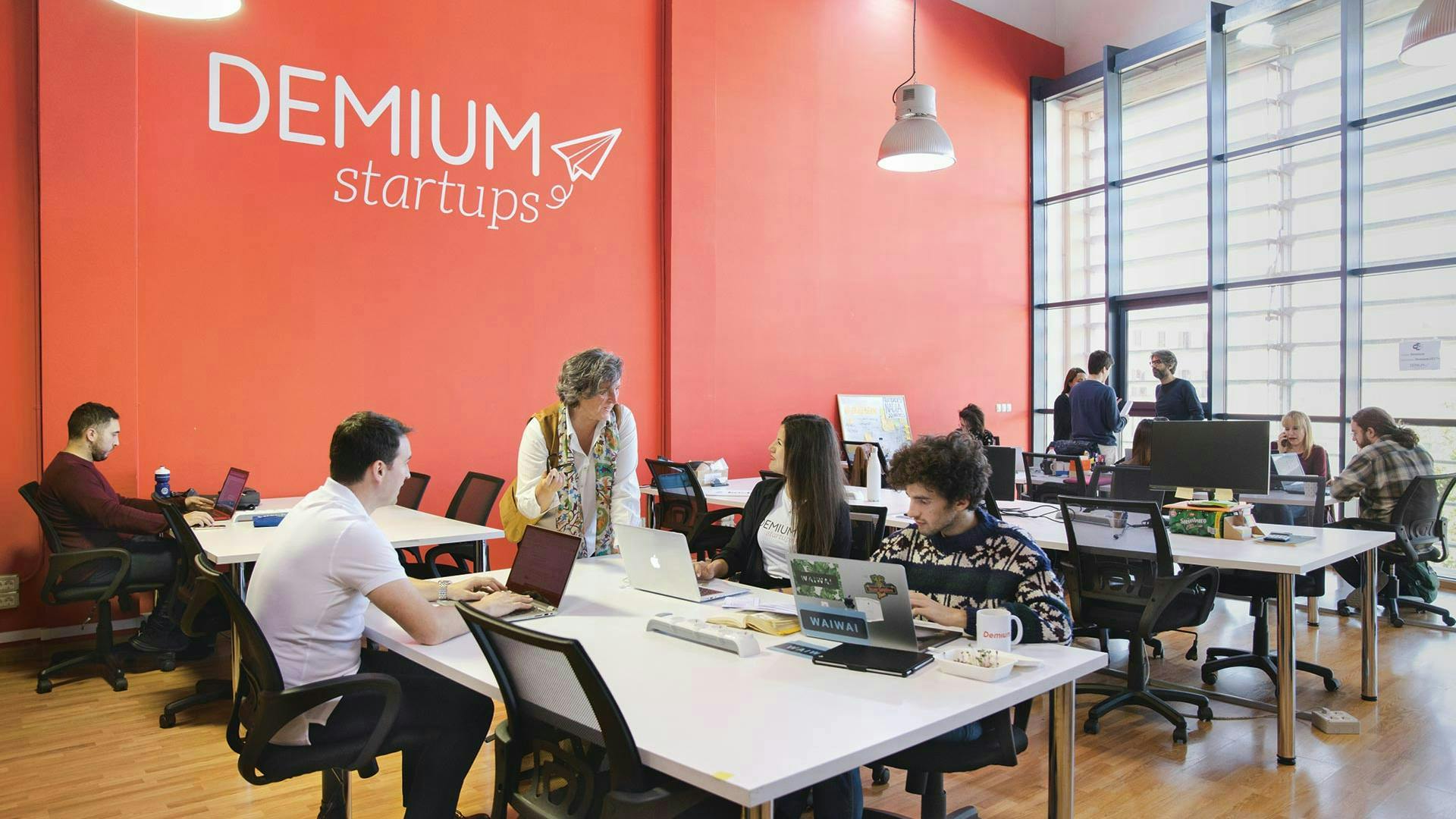
Demium Startups
Originally launched in Valencia as Momentum by Jorge Dobón and Aitor Sancho in 2014, Demium Startups supports aspiring entrepreneurs who want to create projects but don’t yet have business ideas or teams yet. Entrepreneurs-to-be can find Demium locations across Spain in Valencia, Madrid, Bilbao, Málaga and Barcelona, and as of 2019, the incubator has begun expanding to Lisbon, Warsaw, Kyiv, Minsk, Budapest, Bucharest and Athens.
Demium Startups uses a strict and intensive selection process to form dream teams who participate in six-month incubation programs. “The program starts with two weeks of on boarding where participants can get to know each other,” says Elena Yoda, the managing director in Barcelona. “To us, the most important element of a startup is the team, and we want them to feel comfortable working together.”
The program’s unique approach has resulted in 90 percent of Demium teams sticking together after exiting the program. Demium launches a program every two to three months so that participants in different stages can mingle, and more mature teams can support younger ones. This way, participants don’t feel pressure to incorporate until they’re ready.
Demium’s methodology has helped it launch startups with a 75 percent survival rate after three years, and the total valuation of the companies they’ve created exceeds €100 million ($110 million).
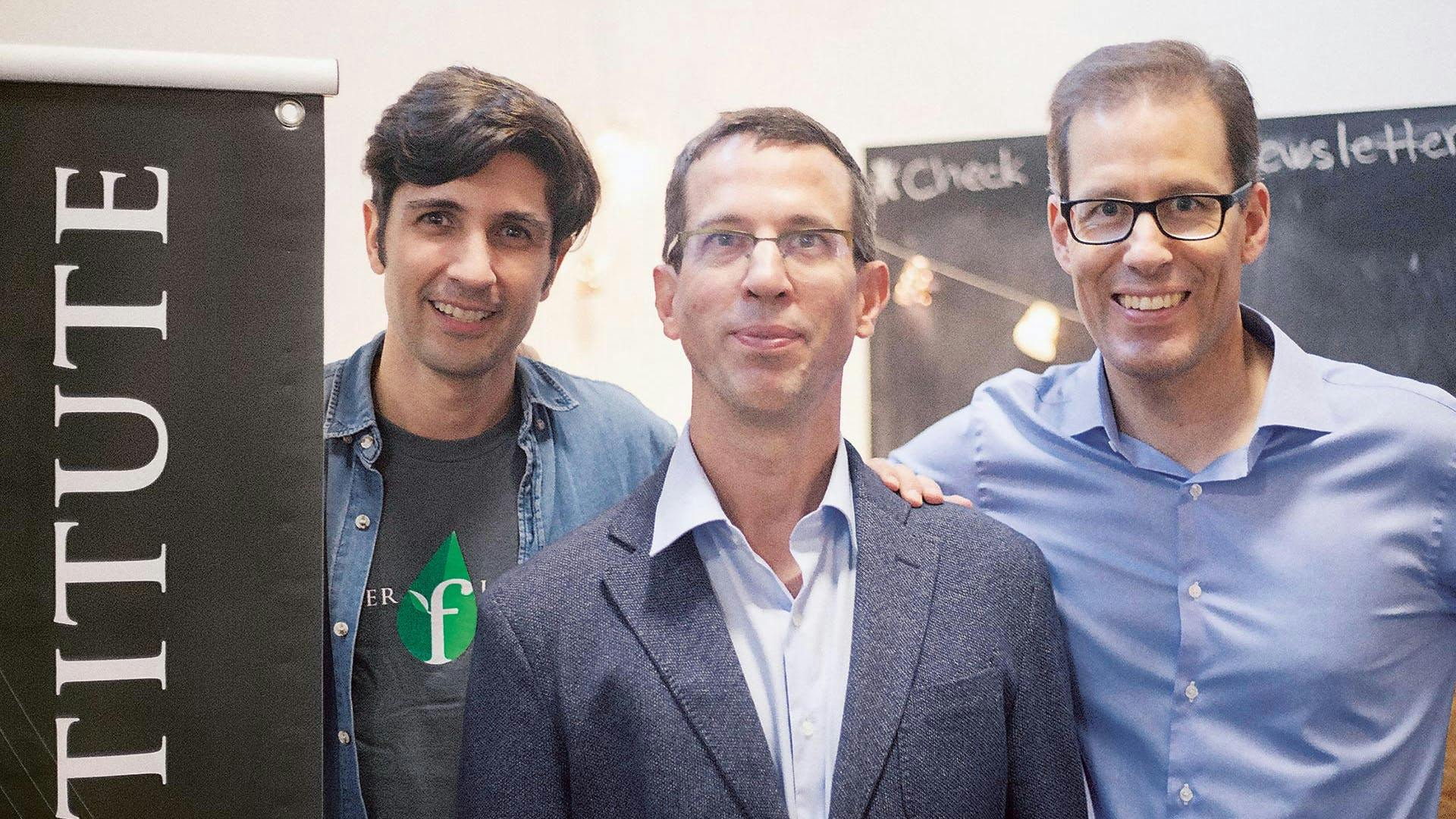
Founder Institute
The Founder Institute is the world’s largest pre-seed startup accelerator network. Based in Silicon Valley, the company has helped launch over 3,500 companies in more than 180 cities, including Madrid, Barcelona, Córdoba and Zaragoza. An idea-stage accelerator program, it plays a crucial role in welcoming new founders into local ecosystems.
The program’s Barcelona chapter opened in 2012 after serial investor and entrepreneur Urs Rothmayr attended a Founder Institute graduation ceremony in Madrid and decided to bring it to Barcelona. He launched the program with innovation consultant Oriol Bas as co-director, and since 2012 they’ve run seven semesters and graduated forty-three startups.
Taking place over four months, the Founder Institute program is very practical, starting with participants validating their hypotheses, and moving onto building a team, looking for clients, and prepping for the launch of their company. Upon graduation, startups should be ready to start fundraising or onboarding clients.
Completing the program is quite a challenge; twenty to twenty-five entrepreneurs are admitted to the program each semester, and only five to ten graduate. Participants tend to drop out because they either find there’s no viable market for their product or the work required to create a business becomes too much. Serial entrepreneur and investor Urs Rothmayr says, “One of our requirements is that you incorporate your company. Not everyone is ready to take that step.”
Barcelona’s Founder Institute chapter is responsible for the crowdlending platform for renewable energy projects Ecrowd, and Drag, a startup that automatizes face customization in images.
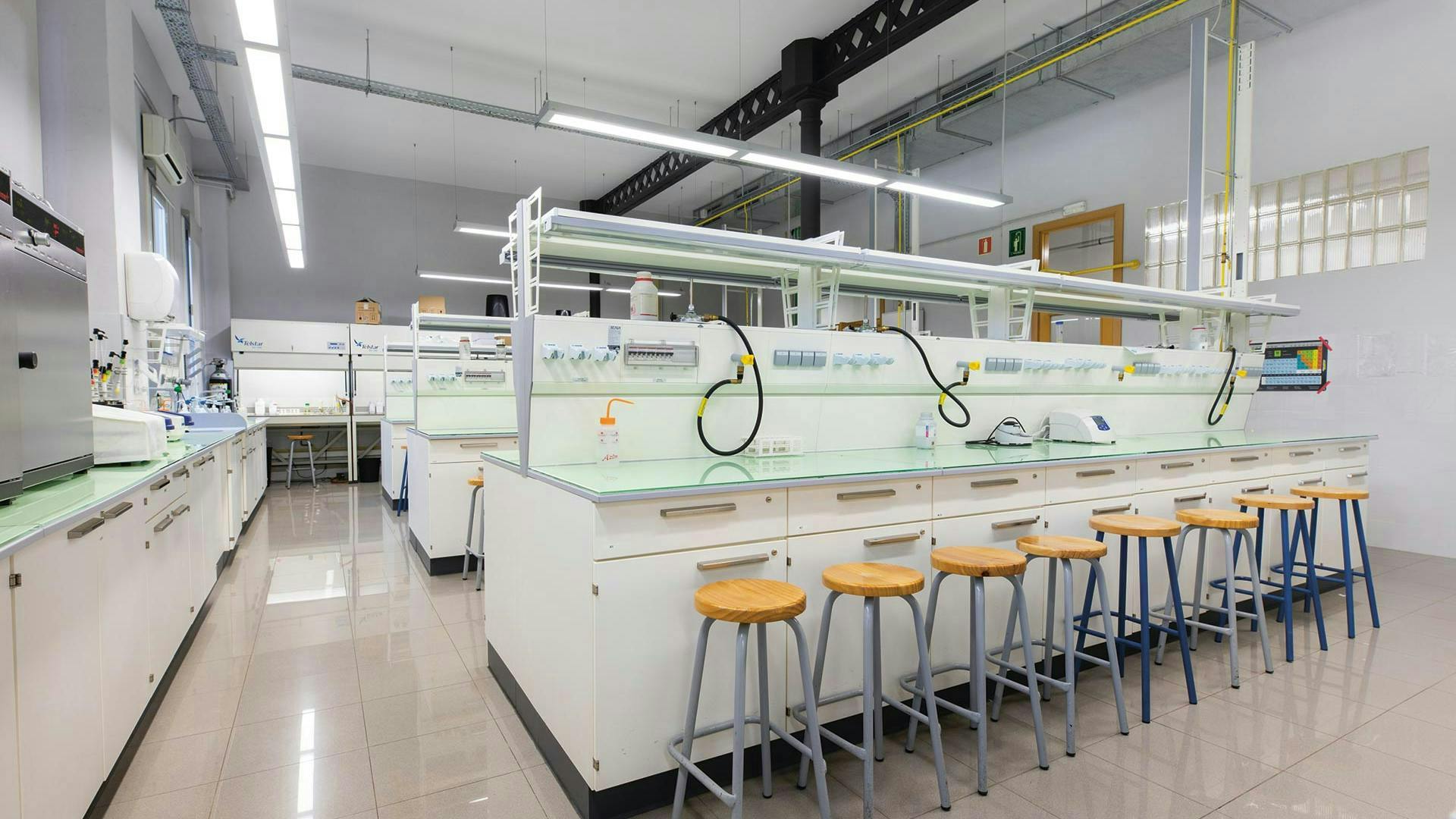
IQS Next Tech
Created in 2015, IQS Next Tech focuses on industrial hardware startups and aims to turn disruptive ideas into global businesses. Spain’s first industrial accelerator offers a six month program, which includes expert sessions covering conceptualization, product development and other key topics.
The accelerator initially took inspiration from the industrial heritage of Catalonia. “Since the 1950s, the Catalan economy has been primarily industrial,” says Orion Pascual, IQS Next Tech’s director. “While going down the digital route might have been easier for us, we felt the long-term rewards lay in hardware, as not only does this sector have deep roots [here], it creates well-paid jobs as well.”
To be accepted into the equity-free incubator, you must have a functioning prototype and at least two people committed full time to the venture.
“After we launched the hardware accelerator, industrial and science-based startups came to us with functional prototypes - everything from sport-tech to robotics,” says Orion. “We realized that we could help startups to produce an industrial series from scratch, and that was our motivation moving forward.”
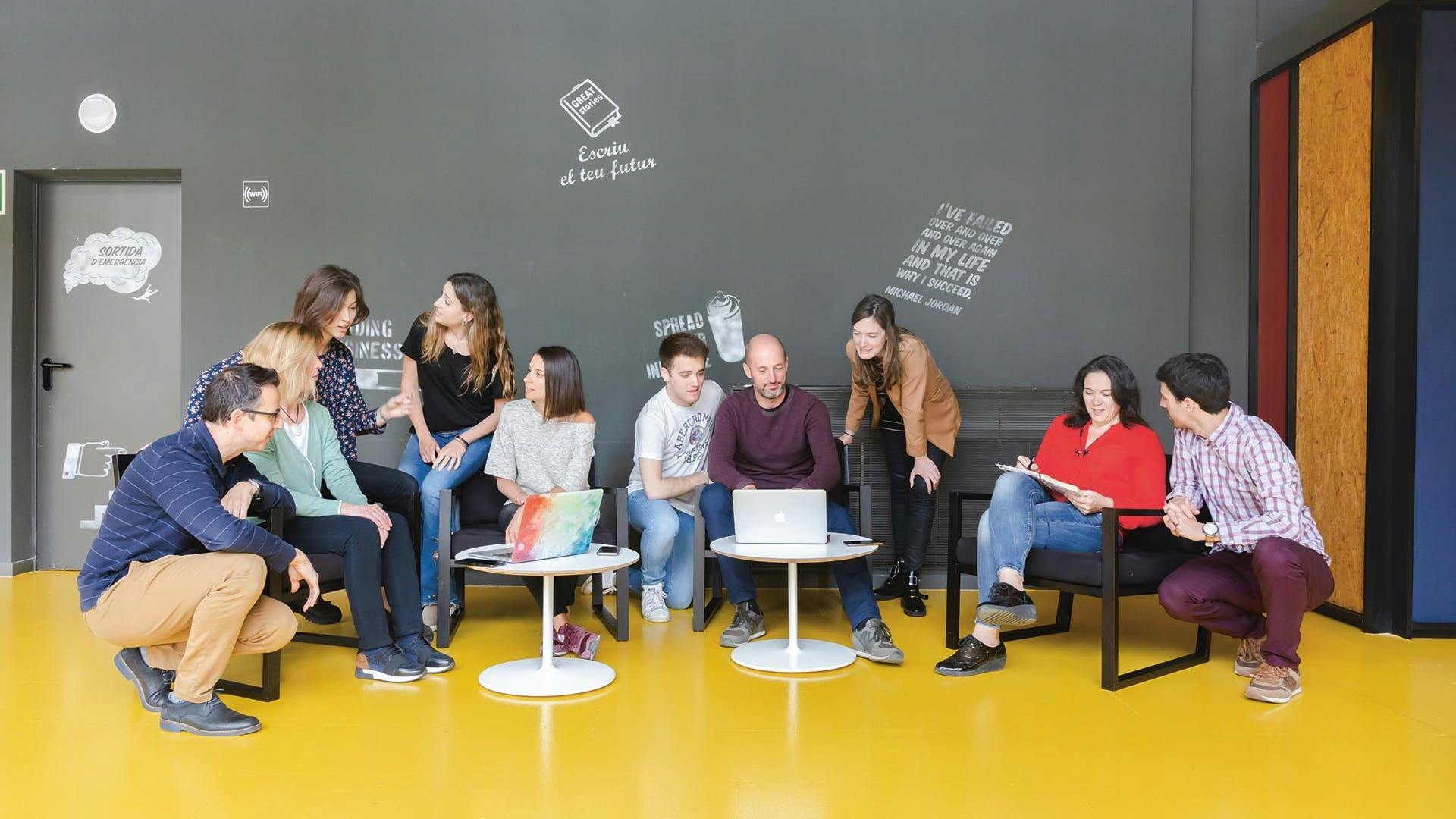
Ship2B
Focusing on impact investment, Ship2B was founded by three entrepreneurs with the goal of becoming a prominent impact-investment player, generating profit both for their organization and making an impact on society.
To fulfill their vision, they created an accelerator with four vertical paths. These include Tech4Health (tech innovation focused directly on patients’ wellbeing), Tech4Climate (products for sustainability, Tech4Social (technology that aims to improve the lives of the aging population and those with disabilities) and B-Value (helping NGOs to become self-sustaining). Participants in each path are assigned a mentor, given a personalized six-month itinerary and bespoke guidance based on their individual and organizational needs.
Ship2B has a vast network of over seventy-three linked partners, has graduated 137 startups and utilizes 215 high-level mentors in their guidance and investment model. The organization helps startups through their first round of seed funding and prepares them for long-term success.
Ship2B works to mobile meaningful funding for impactful ideas. More than €30 million ($34 million) in successful financing has been obtained by enterprises that have collaborated with the program, and €4 million ($4.5 million) in the accelerator’s Equity4Good fund.
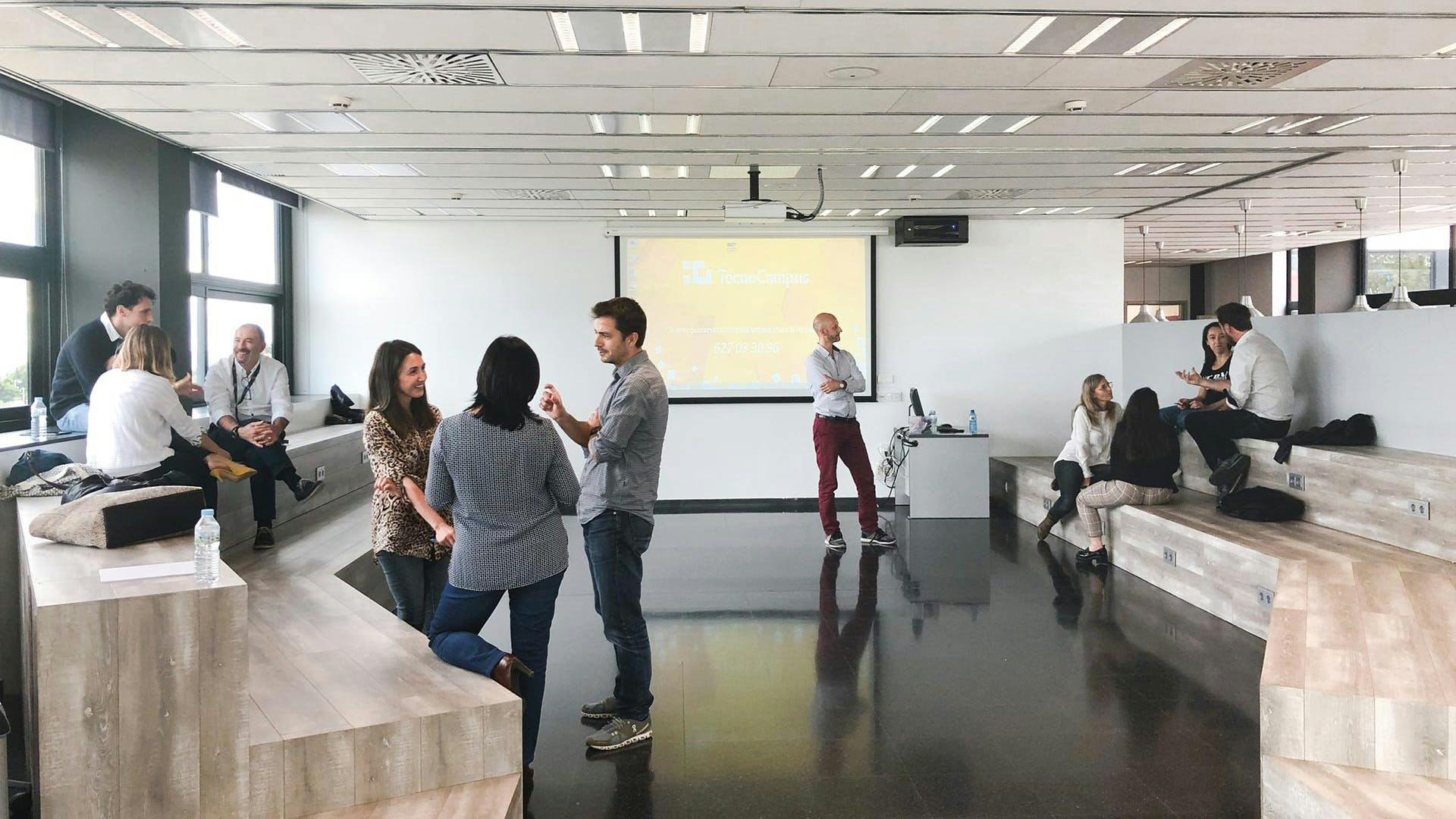
TecnoCampus
Inaugurated in 2010, TecnoCampus is a tech park that offers support services in financing, networking, strategy and internationalization for company creation and growth. The park offers programs for early stage startups, and specializes in strategic sectors of the country’s economy.
TecnoCampus offers programs tailored to particular verticals, such as healthtech and textiles. For instance, startups can become a part of groundbreaking initiatives such as Reimagine Textile, or join Kenko Health Accelerator, which focuses on digital health and medical devices.
Participants that take part in TecnoCampus’ program receive funding, networking and outreach opportunities, incubation services, and legal/financial guidance. Startups can receive direct access to investment and a full-time office space for free. Along with mentoring, financing, advice and support, TecnoCampus gives startups the chance to use on-site labs for prototyping and active innovation.
The program’ amenities and services come together to create a truly disruptive space where investors and entrepreneurs can interface and come up with ideas that may just chang the world.
TecnoCampus has helped establish 480 companies and has provided growth services to 641 entities since its creation.
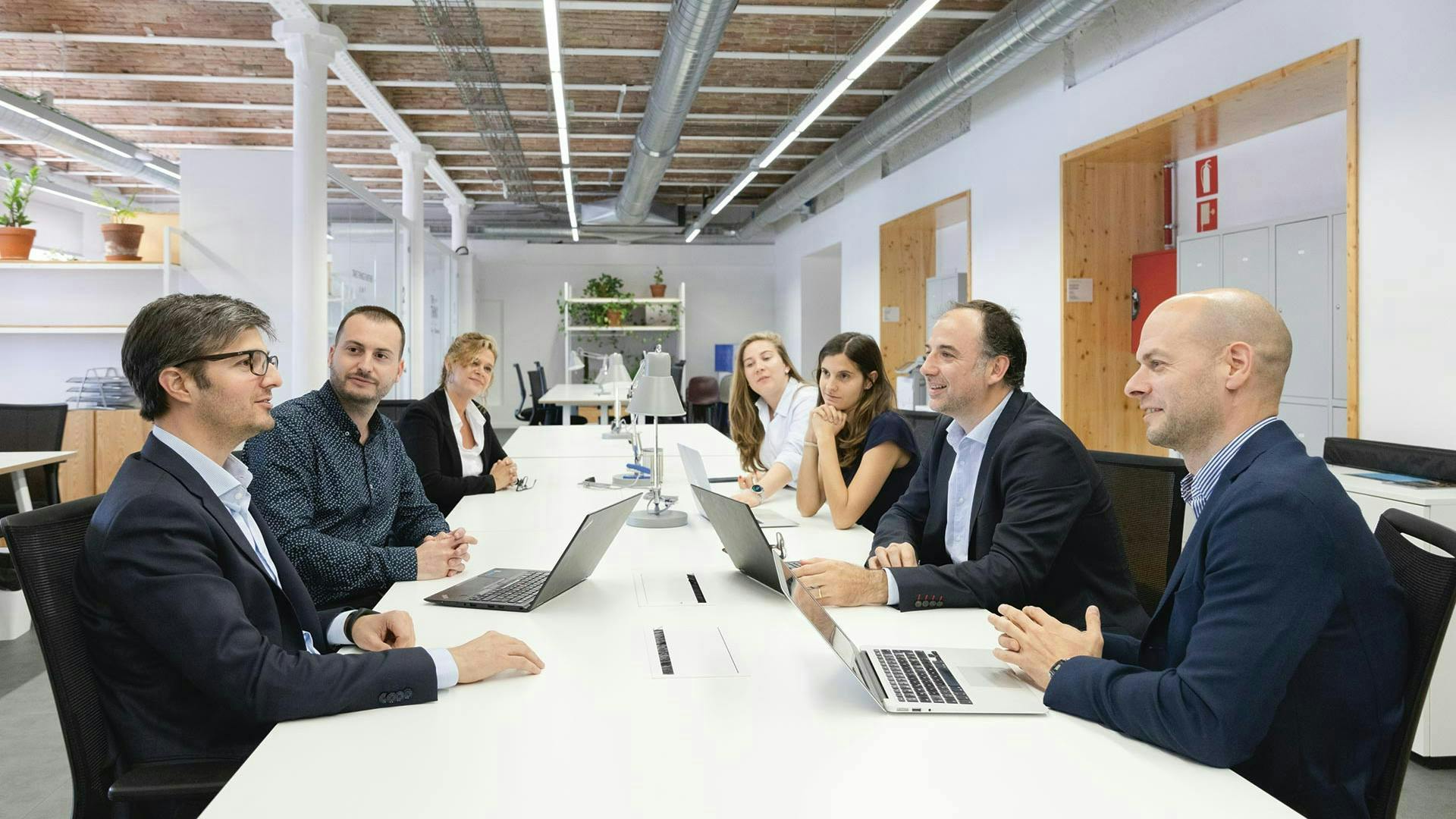
The Collider
The Collider is a deep-tech incubator that harnesses the energy of the best scientific and entrepreneurial minds to create world-changing startups. Operated by Mobile World Capital, the incubator focuses on the key sectors such as AI, IoT, blockchain and VR, and runs annually for six months. Every cohort consists of fifteen founders, who are taken from scientific and entrepreneurial talent-matching to market-testing.
Oscar Sala, the incubator’s director, says, “We are very convinced that when you combine different points of view, magic happens. We are creating the conditions for combining scientists’ talent with entrepreneurs’ talent to bring this magic into action.”
The Collider’s unique model consists of teams being created by program operators and corporate partners. Once scientists and entrepreneurs have been matched into teams, the operators and partners help determine the development of their go-to-market strategies.
This model has already led to innovative tech solutions, such as a company that builds molecular models for drug discovery and a company that optimizes large buildings’ energy usage. “Entrepreneurs are able to work with top scientists worldwide in really special projects that will have a huge impact on society,” says Oscar.
Original content by Miriam Partington, Lester Isaac Simon, Phineas Rueckert, Vivien Magyar, Daniel Agnew, and Cayleigh Bright
Repackaging by Lester Isaac Simon
All photos: Startup Guide Barcelona
Want to learn more about the Barcelona startup ecosystem,? You’re in luck! For more in-depth information about the programs above, as well as the best startups, universities, coworking spaces, investors and key experts, purchase your copy of Startup Guide Barcelona.
